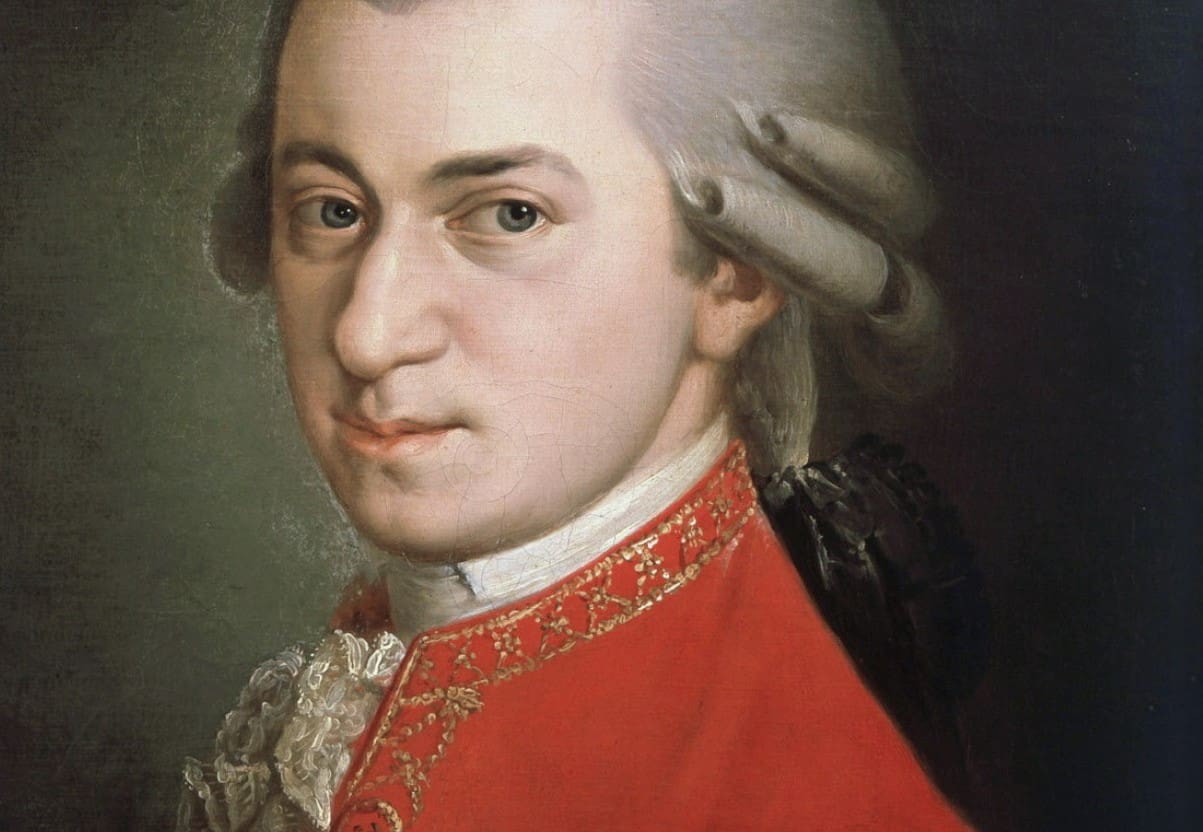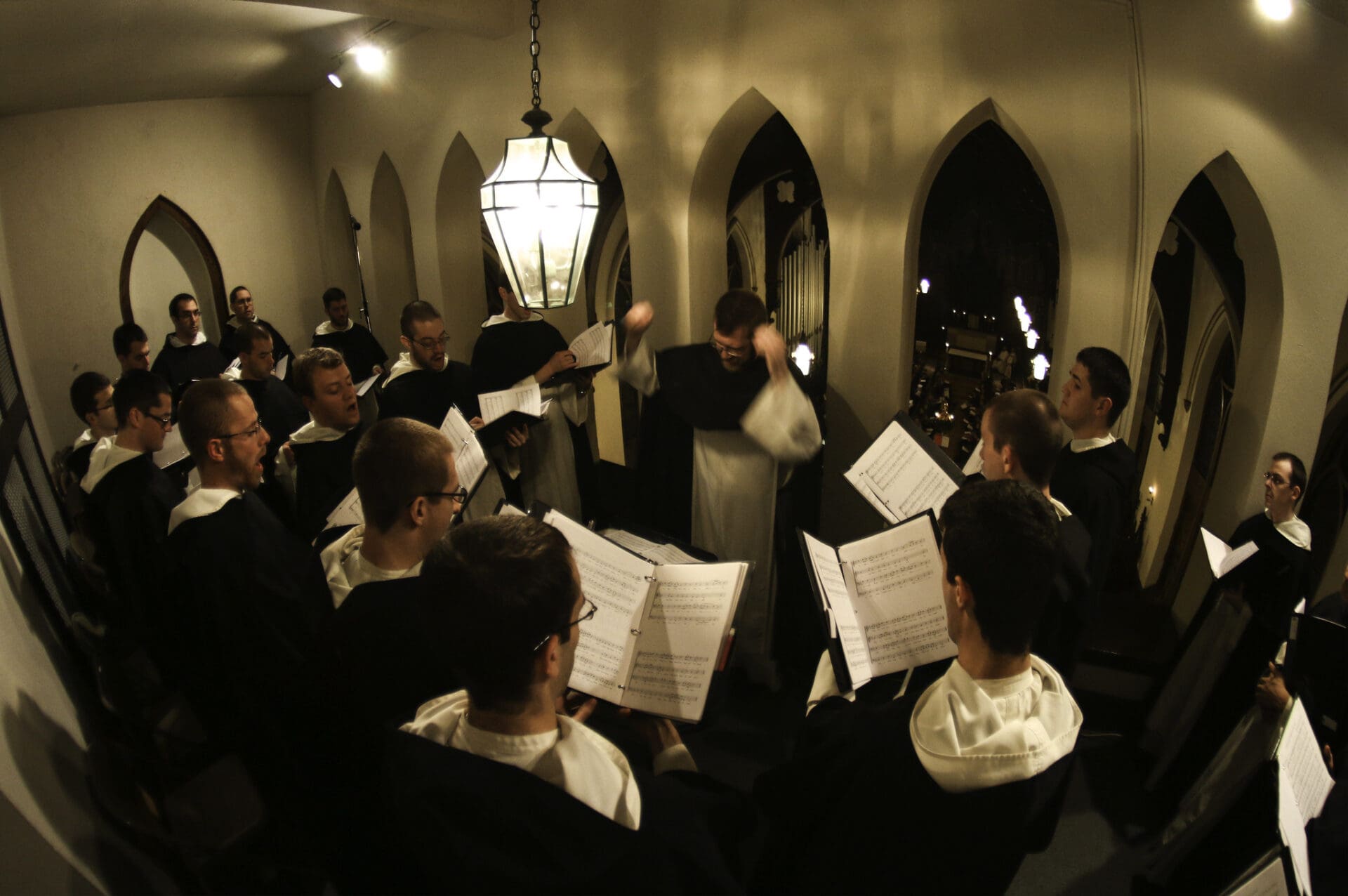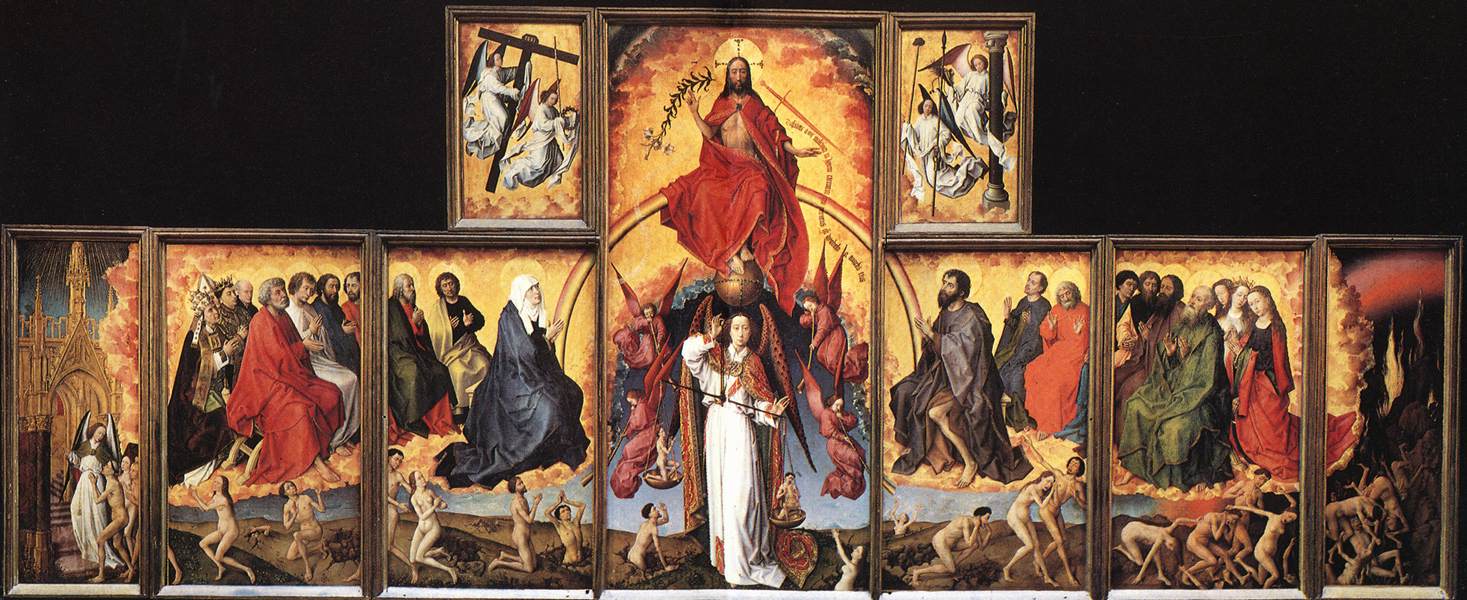Network television is the voice of materialism. It serves the purpose of reducing everything, even what is beautiful, to what is worldly. Mozart’s Lacrimosa, his final composition, now serves the needs of Nike sneakers, Burrito snacks, and Direct-TV. The TV-viewer hears the music, but his attention is drawn to the commercial products. It is an affiliation that most assuredly would have outraged the great Austrian composer.
Mozart’s music, such as Ave Verum or Da Nobis Pacem, in a liturgical setting, lifts the worshiper to a higher plane. Each of the three TV commercials mentioned above pilfered its soundtrack from Mozart’s Requiem, but directs the viewer to a lower level than the music itself might suggest. One can easily imagine a consumer watching Nike-shod basketball players, while munching on burritos through the courtesy of Direct-TV. The great apostle of music’s spiritual capacities now sub-serves commercial products. The majesty of the Lacrimosa escapes the consumer—or rather, the transcendence of the music is digested by the consumer as merely a pretty decoration to Madison Avenue’s worldly view of existence. The stuff of dreams is replaced by dreams of stuff. Indeed, the viewer may consume the products for sale – but in reality he is also consumed by the material. His world is restricted to planet earth.
In The Ratzinger Report, Joseph Cardinal Ratzinger complained, “The liturgy is not a show, a spectacle, requiring brilliant producers and talented actors. The life of the liturgy does not consist in ‘pleasant’ surprises and attractive ‘ideas’ but in solemn repetitions. It cannot be an expression of what is current and transitory, for it expresses the mystery of the Holy.” The liturgy should assist evoking God’s presence. Music has an innate potential for achieving this. “To send light into the darkness of men’s hearts,” wrote Robert Schumann, “such is the duty of the artist.” We may allude to the mystery, though we can never capture it. But the allusion is vital, since it ennobles us and reminds us of our ultimate destiny.
In the motion picture, The Shawshank Redemption (1994), adapted from a Stephen King novel, we find an incident in which an assortment of prisoners hear, unexpectedly, a Mozart aria in its purity. Protagonist Tim Robbins’ character uses his privileged position with the prison governor to broadcast over the public address system a recording of Duettino sull’aria (“a little duet on the breeze”) from Mozart’s The Marriage of Figaro. Prisoners stopped what they were doing. One of the inmates tossed aside his Archie comic book. They were spellbound by the beauty of this wondrous gift that seemed to come out of nowhere. Two female vocalists were expressing in music something from another realm and yet conveyed something real. We listen to the honey-toned voice-over of Morgan Freeman who remarks, “I’d like to think they were singing about something so beautiful it can’t be expressed in words and makes your heart ache because of it.” Mozart’s intimation of a higher order, in irresistibly beautiful sounds, stirred the souls of these convicted criminals, a convincing testimony of both its humanity as well as its universality. If only such music—after all, Figaro was a comic opera about altogether worldly concerns—could be set in a liturgy without losing its supernatural intimations.
The historical circumstances concerning the composition of the Lacrimosa give us an even better appreciation of its allusion to another world. The great composer believed that he was writing the Requiem for himself. He was not far off the mark. He was, indeed, dying. And, as death approached, Mozart was dictating the very last piece he ever composed—Lacrimosa dies illa (“that day of tears”). A few singers from The Magic Flute came to see him at his request and sang from the pages he had just written. After a few measures, as biographer Marcia Davenport describes it, “Wolfgang burst into a flood of tears.” The singers were obliged to stop. It was not easy to die. There was so much that was yet unfinished. “I have come to an end,” Mozart lamented, “before having realized the fullness of my talent.” Thirty-five years was too short a lifespan. Shortly after midnight, the soul of one of the greatest composers who ever set pen to paper passed on to his eternal reward. It is perhaps fitting that the Lacrimosa would be his parting gift to the world. “I thank my God,” Mozart once declared, “for graciously granting me the opportunity of learning that death is the key which unlocks the door to our true happiness.”
The liturgy does not ignore the flesh and blood reality of the worshiper, nor does Mozart’s music. Nevertheless, the liturgy raises one’s consciousness to the existence of another world, one where God dwells as in his eternal home.
It has been said that if the most important contribution of the great Greek philosophers could be summed up in a single word, it would be “aspiration.” We all aspire to something greater than what we know. The principle stem of the Latin word aspirare means “to strive for, seek to reach.” Socrates, Plato, and Aristotle, all in their own way, alluded to God. Their thinking was not earthbound. Church “spires” point to heaven. The word “spire” is etymologically connected to “aspire” as well as “inspire.” But it is also connected to the word “respire,” referring to breathing. This brings out the word’s subtlety. To aspire is akin to the air we breathe. It is real, life-giving, and yet invisible. Music has the same kind of subtlety about it. It is easily lost sight of or misunderstood. So too is the liturgy. Things that aspire to heaven can easily be misdirected. Thus, we have Mozart selling Nike sneakers and priests hosting balloon Masses. In such cases, what is missed is the Holy.
We need a return to the Holy not only in art but also, more importantly, in the liturgy. What is Holy engulfs us. Indeed, Nike et al notwithstanding, the true selling point of the liturgy is that it has nothing to sell—but everything to offer. We only need fresh eyes and fresh ears to witness it—and embrace it.



